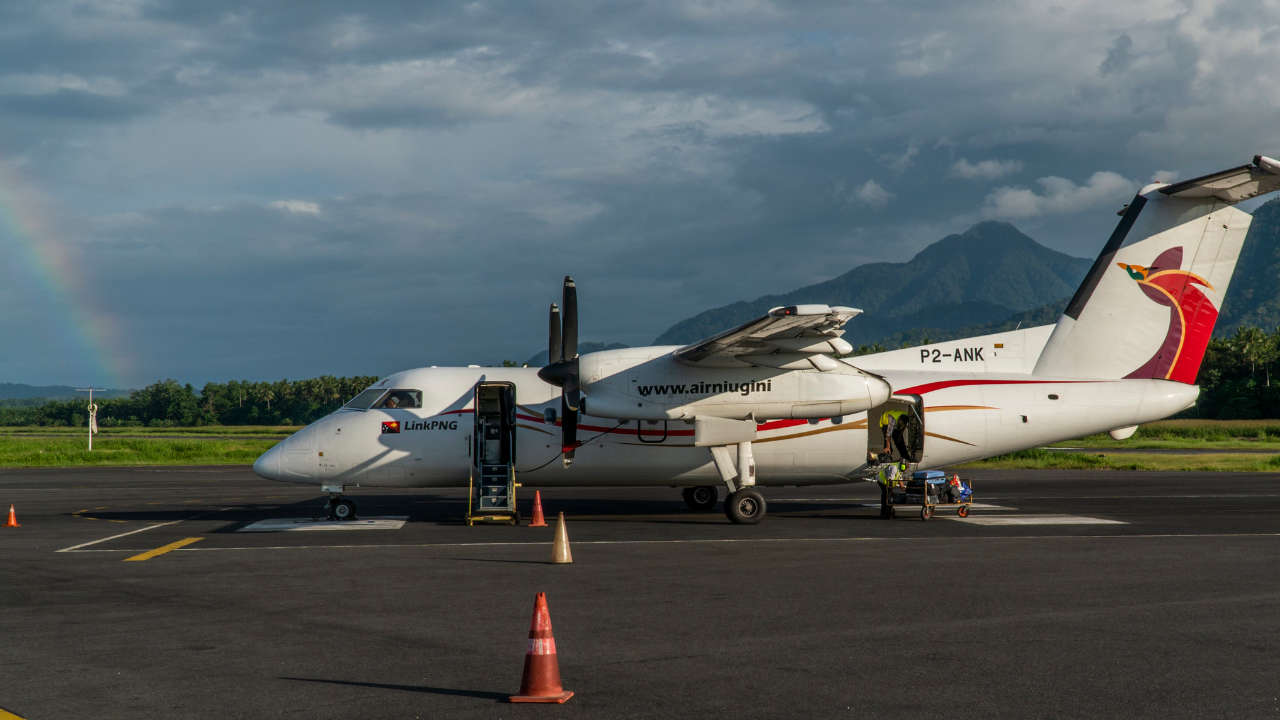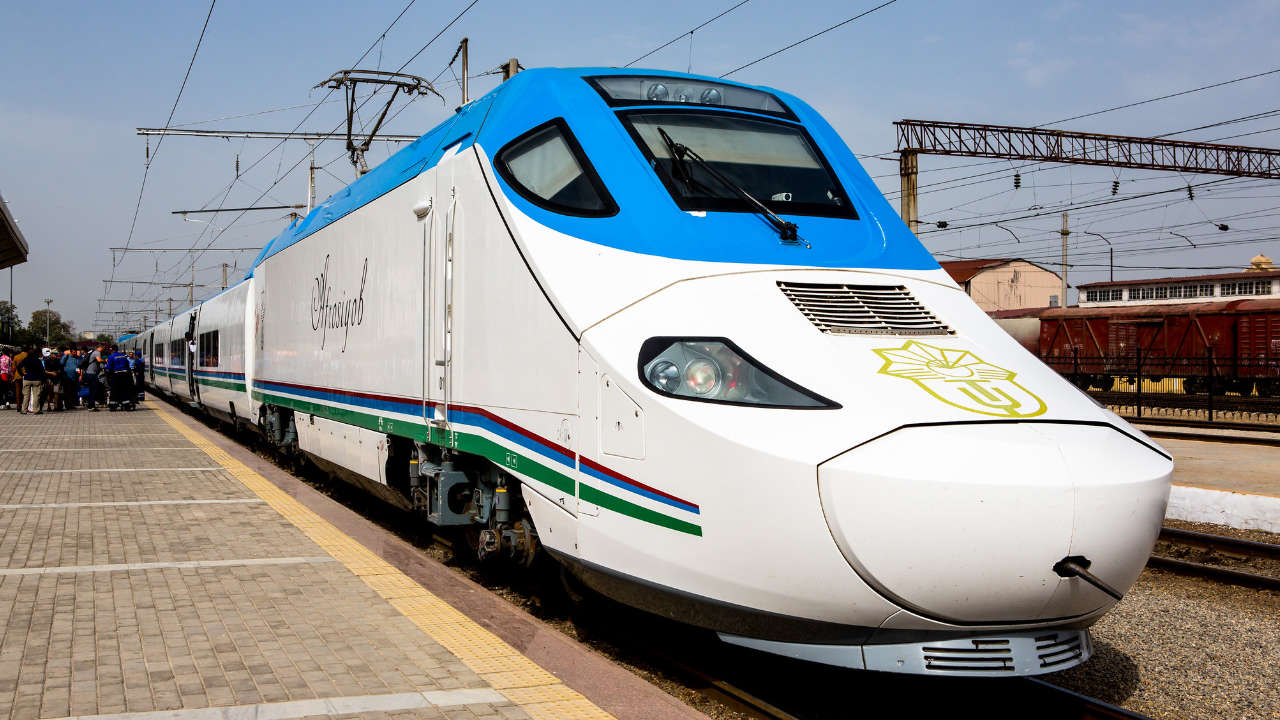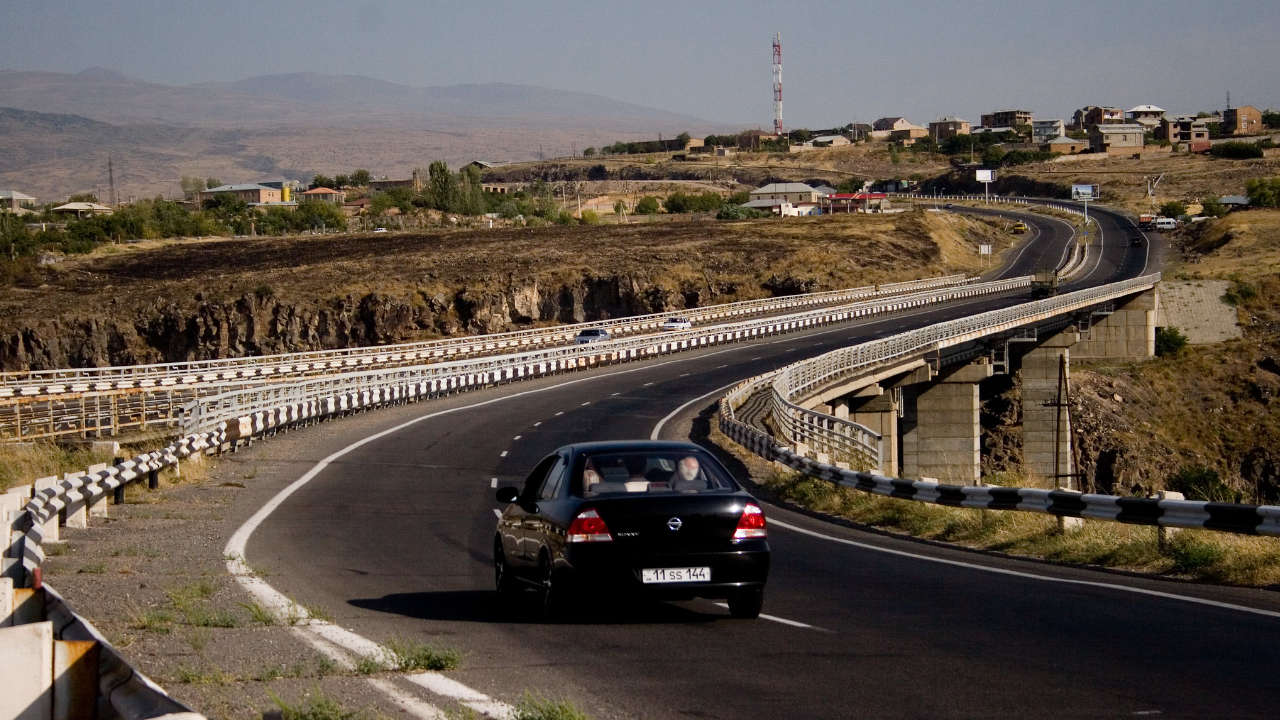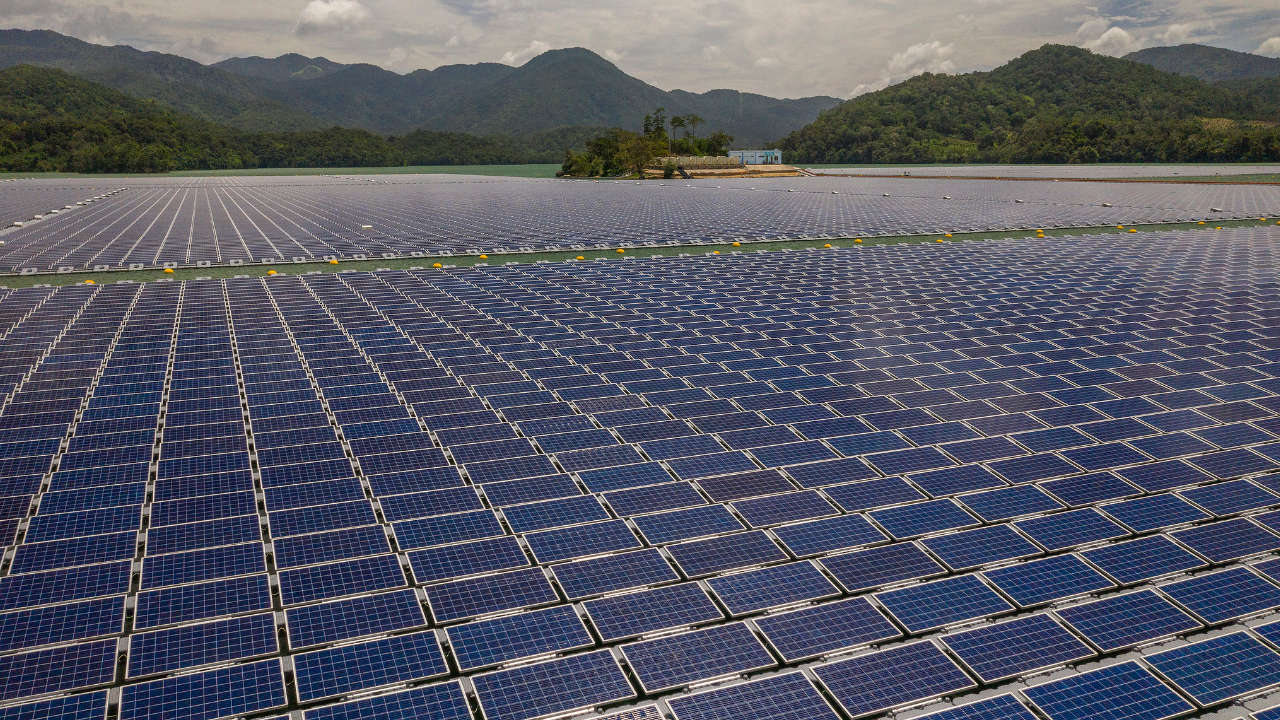International Commercial Arbitration
In recent decades, international arbitration has become the preferred means of resolving international commercial disputes all over the world. International arbitration is preferred over litigation in the national courts because it offers certainty for commercial parties and allows parties greater autonomy to manage the risks involved in cross-border transactions. An arbitral award is capable of enforcement in 168 countries under the 1958 United Nations Convention on the Recognition and Enforcement of Foreign Arbitral Awards (the “New York Convention”).
Studies have shown that ratification of or accession to the New York Convention is associated with positive economic impacts, such as increased trade flows, and net foreign direct investment (FDI) inflows.
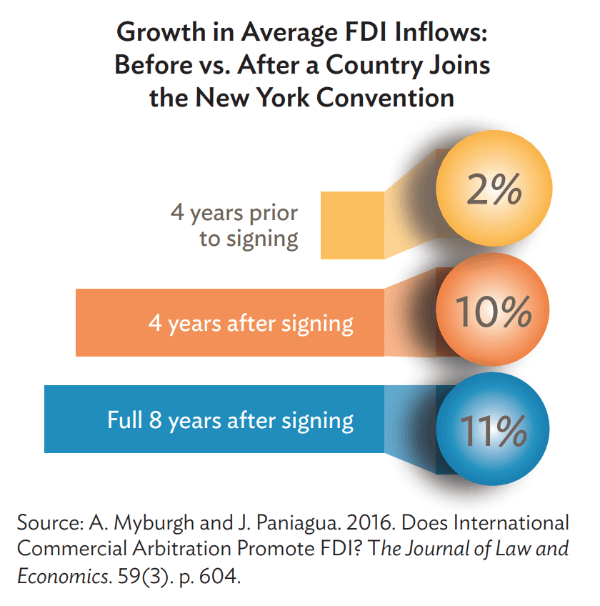
With assistance from ADB's Law and Policy Reform Program, and in collaboration with the United Nations Commission on International Trade Law (UNCITRAL), Papua New Guinea, Palau, and Tonga acceded to the New York Convention on 17 July 2019, 31 March 2020, and 12 June 2020, respectively.
ADB also assisted developing countries in upgrading their domestic legislation to align with international best practices. Fiji's International Arbitration Act 2017, Tonga's International Arbitration Act 2020, and Palau's International Commercial Arbitration Act 2021 are all based on the 1985 UNCITRAL Model Law, with amendments as adopted in 2006. The Papua New Guinea Arbitration Bill—still in progress—is likewise based on the UNCITRAL Model Law.
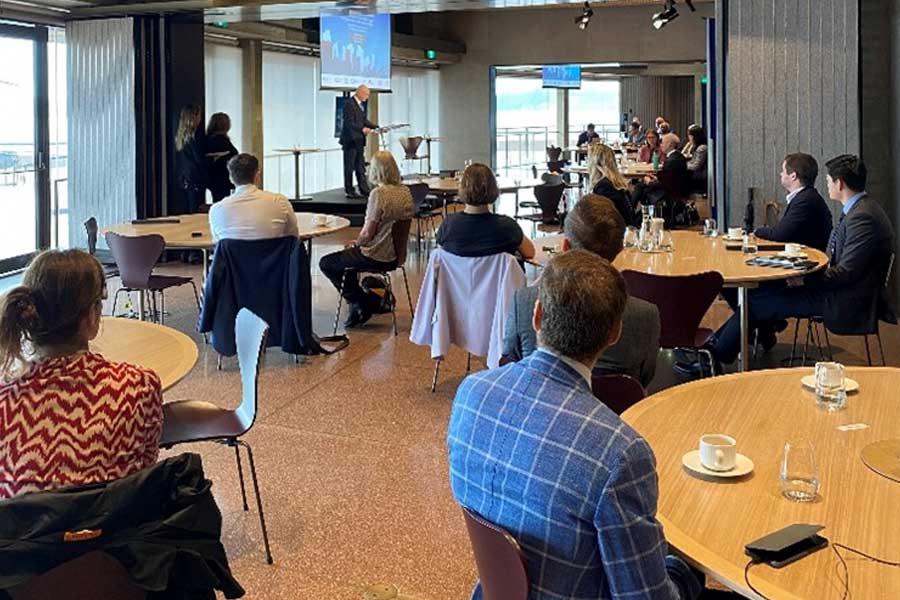
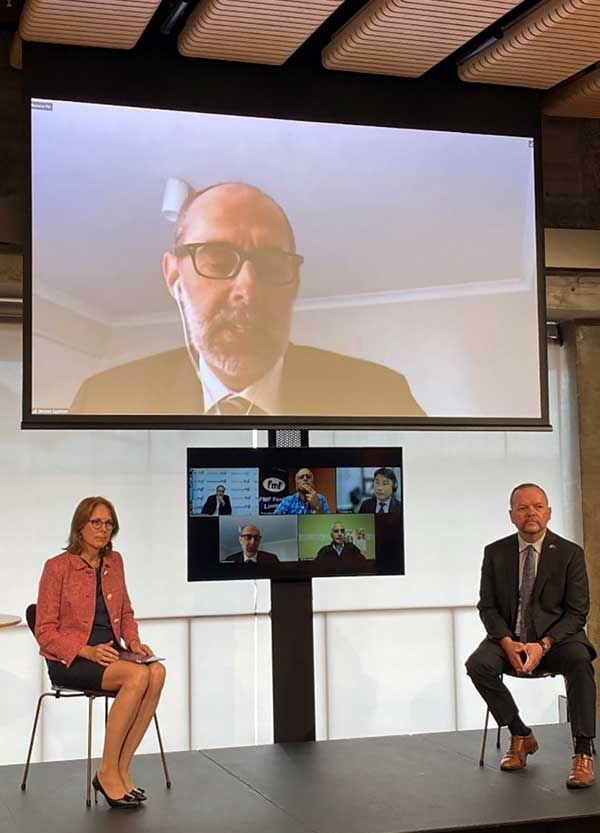
On 2 February 2021, the National Parliament of Timor-Leste approved accession to the New York Convention. Deposit of the instrument of accession is anticipated to happen in due course. The implementing legislation, Law No. 6/2021 of 31 March 2021 (Voluntary Arbitration Law), has also been approved by the National Parliament and is applicable to all arbitration proceedings launched from 1 April 2021.
ADB, along with its development partners, convened the First, Second and Third South Pacific International Arbitration Conferences, as well other capacity building activities.
ADB South Pacific International Arbitration Conferences
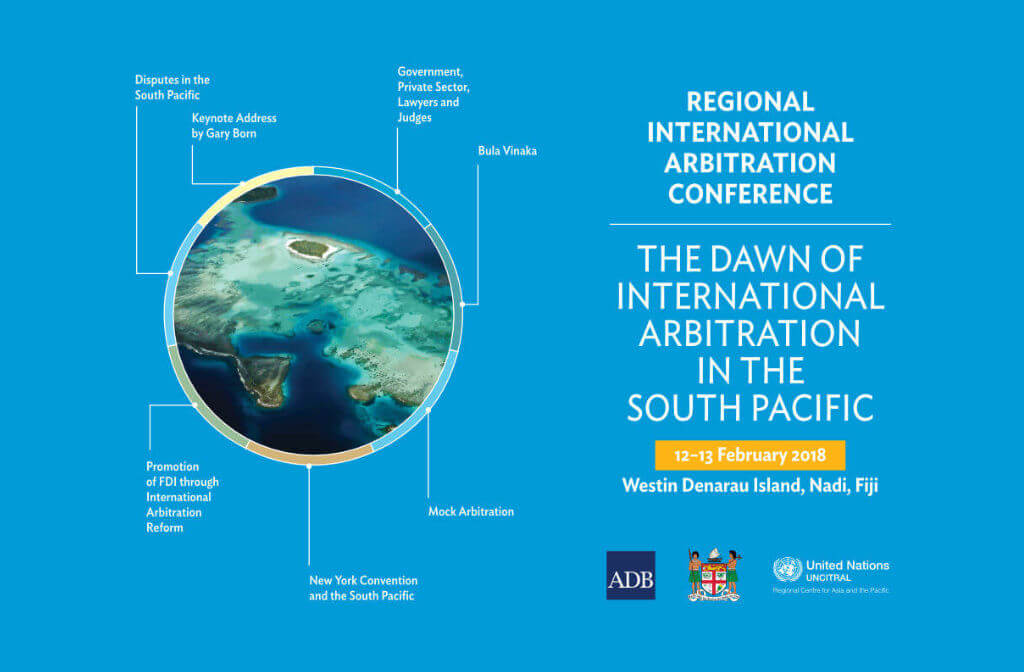
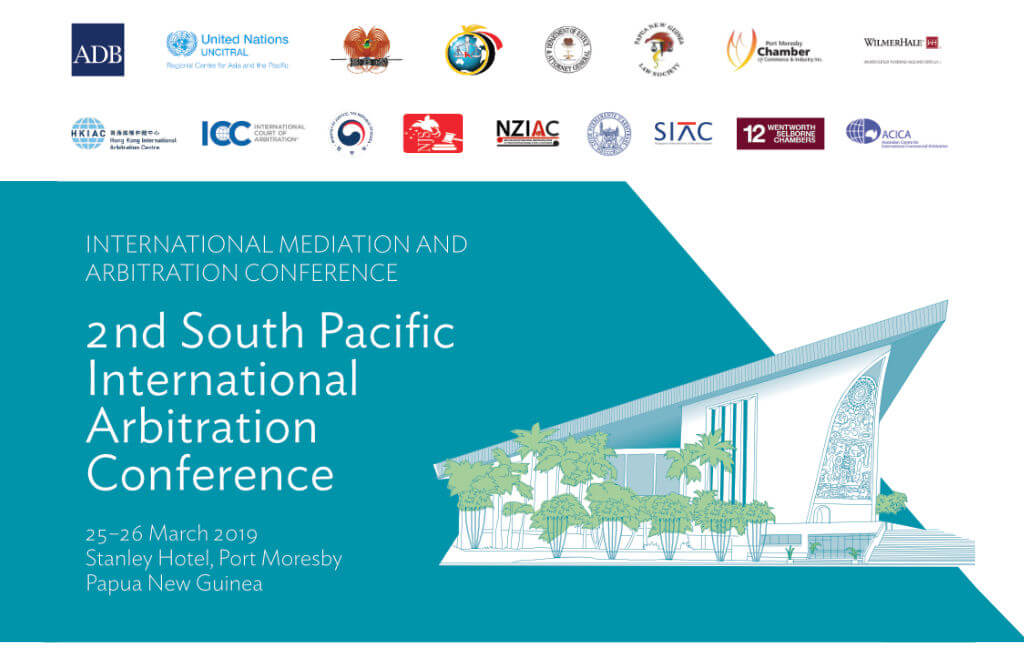
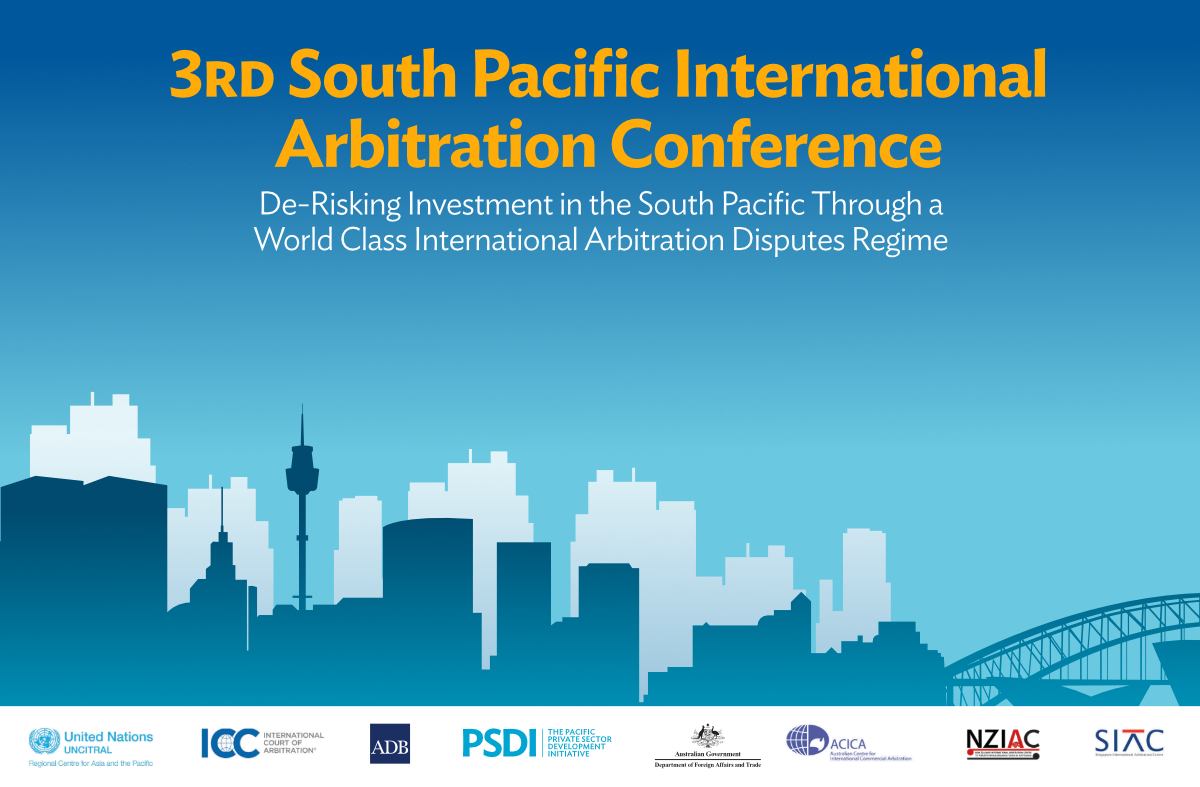
WATCH: Third South Pacific International Arbitration Conference Session Videos
The South Pacific region now has the best and most progressive international arbitration legal framework in the world. This development sends a powerful signal to potential trading partners and investors that the South Pacific is "open for business." For instance, Palau's accession to the New York Convention and the promulgation of its International Commercial Arbitration Act 2021 provided considerable comfort to American and Philippine private partners in developing and financing the Palau Solar PV and Battery Energy Storage System (BESS) IPP Project, a $25 Million project that will supply affordable electricity supply and help build climate and disaster resilience through the provision of state of the art design and technology.
ADB's commitment to strengthen the capacity of judges and legal professionals continues despite the COVID-19 pandemic. Using various online platforms, the Law and Policy Reform Program has convened conferences, webinars, and other capacity building events on international arbitration—connecting the South Pacific community to the world's best arbitration experts.
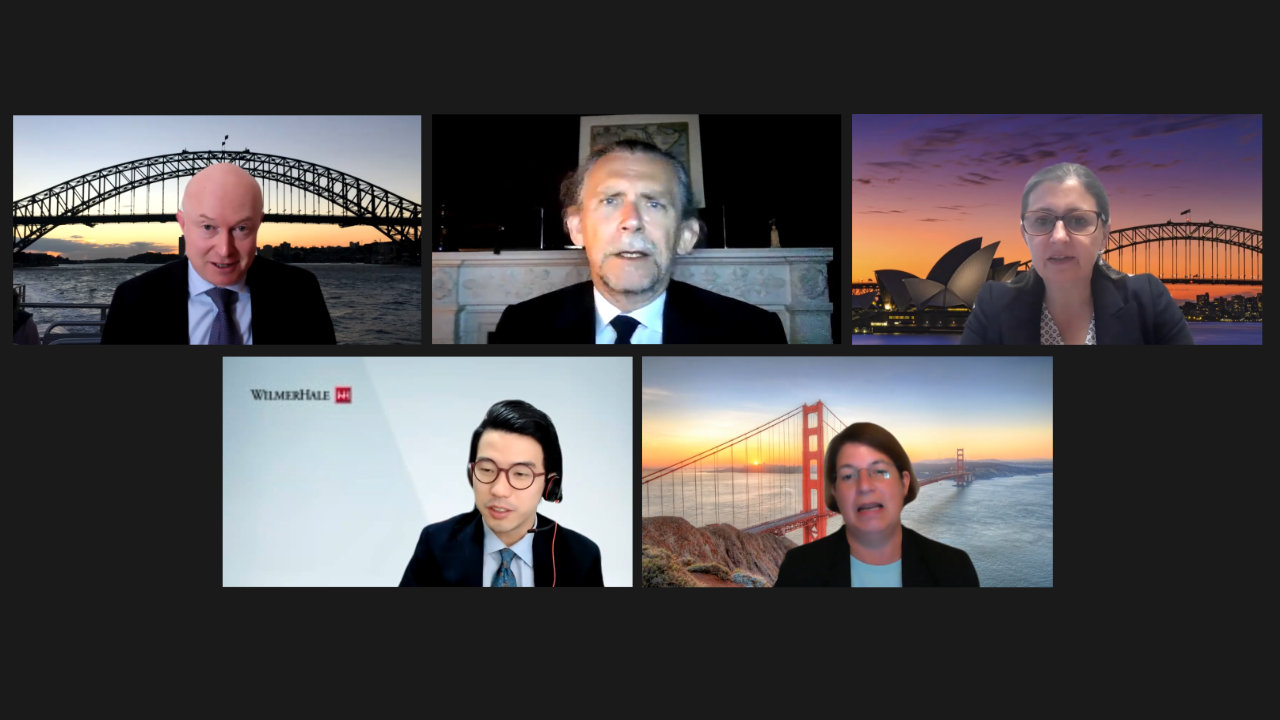
Following Palau’s accession to the New York Convention and the recent enactment of the International Arbitration Act, OGC's Law and Policy Reform Program organized an international commercial arbitration workshop for the Palauan legal community on 7 June 2021 via Zoom. From left to right: Daniel Meltz, Barrister, 12 Wentworth Selborne Chambers/ADB International Arbitration Expert, Gary Born, Chair, International Arbitration Practice Group, Wilmer Pickering Hale and Dorr LLP/President, SIAC Court of Arbitration/ADB International Arbitration Expert, Jo Delaney, Partner, Baker McKenzie, Sydney, Jonathan Lim, Counsel, Wilmer Cutler Pickering Hale and Dorr LLP, London, Brenda Horrigan, Independent Arbitrator; former President of the Australian Centre for International Commercial Arbitration; and former Head of International Arbitration - Australia, Herbert Smith Freehills.
Public-Private Partnerships (PPP) Reform Initiatives
ADB's pre-pandemic climate-adjusted estimates peg Developing Asia's investment needs at $26 trillion, or $1.7 trillion per year, from 2016 to 2030. Almost 90% of this figure will be for power and transport. However, the region invests only $881 billion in infrastructure annually—resulting in a massive infrastructure investment gap. Now, with finite government resources realigned to COVID-19 response, the difference between investment needs and current investment levels is expected to steeply increase.
Public-Private Partnerships (PPPs) are thus essential to addressing the infrastructure investment gap and the broader goal of sustainable development. But capacity and resource constraints, as well as the absence of effective legal and regulatory frameworks, serve as barriers to investment and undermine performance of these projects.
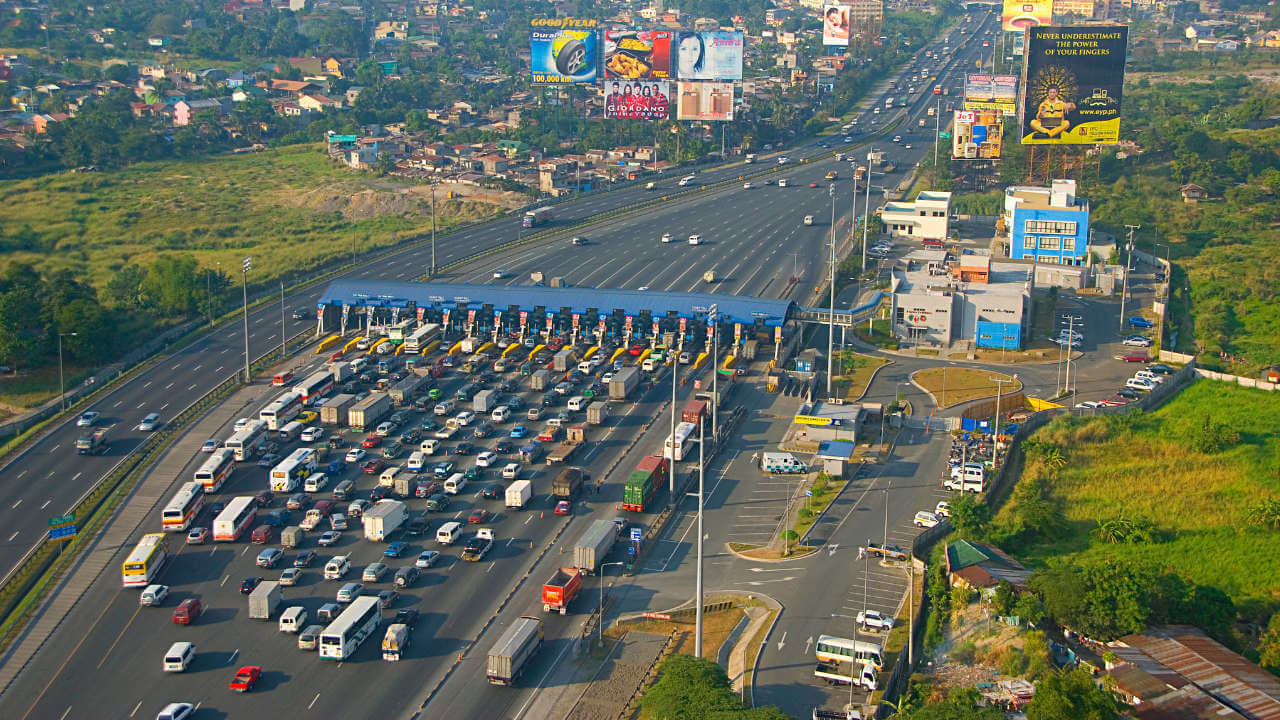
The North Luzon Expressway Rehabilitation and Expansion Project helped renovate an 83.7-kilometer section of the road and build or rehabilitate 14 interchanges, 24 bridges, and 31 overpasses from Manila to the Clark Special Economic Zone in Pampanga province. The road used to be a heavily pot-holed two-lane thoroughfare where overloaded trucks, speeding buses, and private vehicles dangerously competed for space. Today, it is a safe, smooth tollway with good lighting, modern signage, and vigorous enforcement of traffic laws.
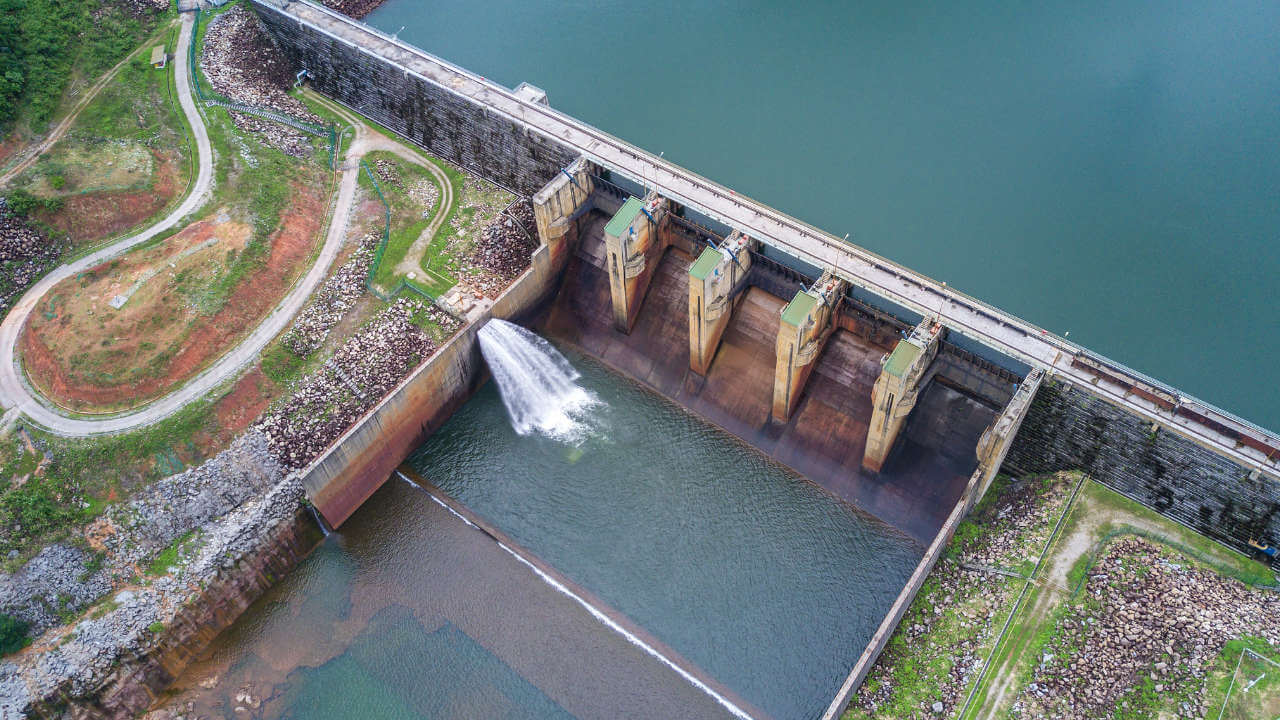
The Nakai Reservoir was formed by the construction of the Nakai Dam - a 39-m high gravity dam with a crest length of 325 m across the Nam Theun river. The reservoir provides a huge fishing resource that has helped improve the living conditions of resettled villagers. The Nam Theun 2 is a 1070 MW hydropower plant on Nam Theun river in Laos PDR. 95% of the power produced by the plant is exported to Thailand and the rest are consumed locally. Revenues from the power plant are used by the government of Lao PDR to help reduce poverty in the country. The Power Plant started its commercial operations in 2010.
ADB's Law and Policy Reform Program assists developing countries with legal, regulatory, and policy reforms to make infrastructure more attractive to private capital and develop bankable projects for PPPs. In January 2021, the President of Uzbekistan signed Law No. 669, which was drafted with ADB's assistance. The Law amended the original PPP Law to codify reforms in several key areas. It has been described as "based on international market standards for a fast-growing economy and [focusing] on facilitating foreign investment, including through a streamlined and transparent tender process, balanced foreign exchange risk protection, and international arbitration. This is providing momentum for forays into new sectors, the creation of contract templates, and building PPP capacity to deliver more projects in years to come."
Similarly, ADB assisted Viet Nam with its Law on Public Private Partnership No. 64/2020/QH14, which took effect on 1 January 2021. The Law rationalized the list of allowable PPP investment sectors; set forth the criteria to be considered eligible PPP investors, as well as modalities for appointment (e.g., bidding, competitive negotiation, direct appointment); covered conditions on signing, amendment, and termination of contracts; and mandated the publication of relevant information in the national tendering network system.
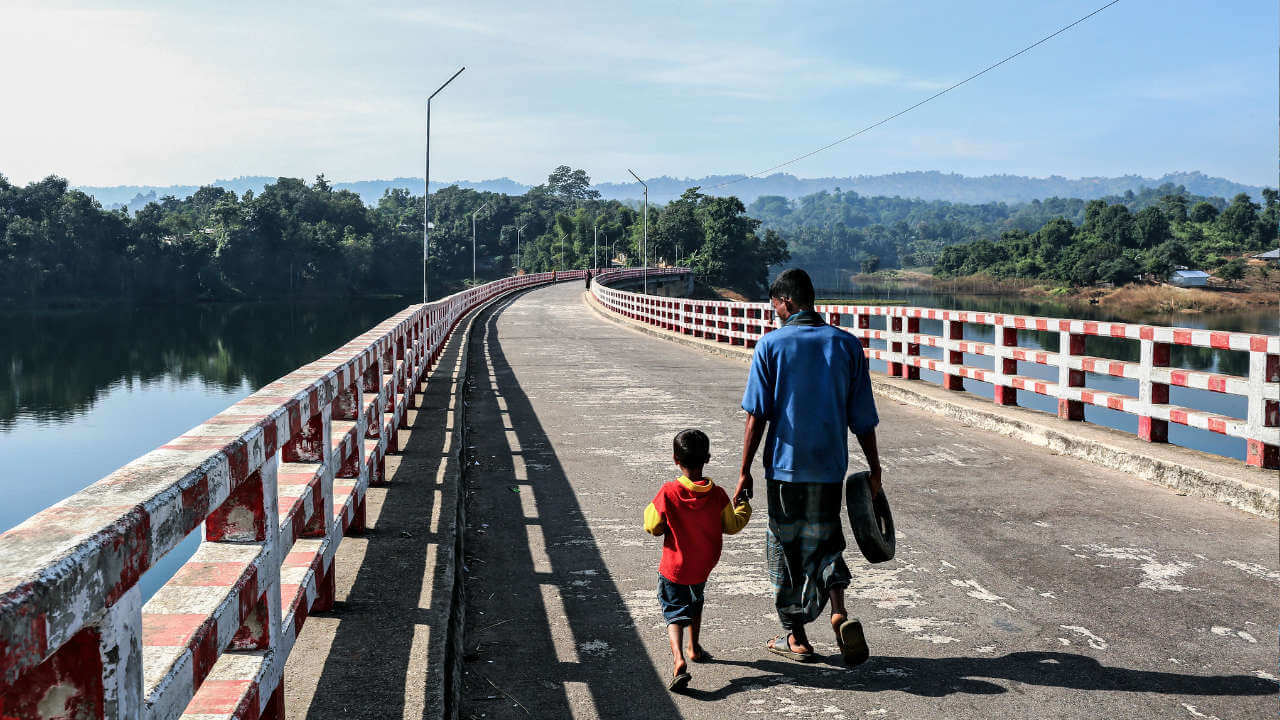
41% of the indigenous people of Bangladesh lives in the Chittagong Hill Tracts area where land transportation was very challenging. The Chittagong Hill Tracts Rural Development Project (CHTRDP) by Asian Development Bank (ADB) built new roads, culverts, and bridges that connected the community more effectively.
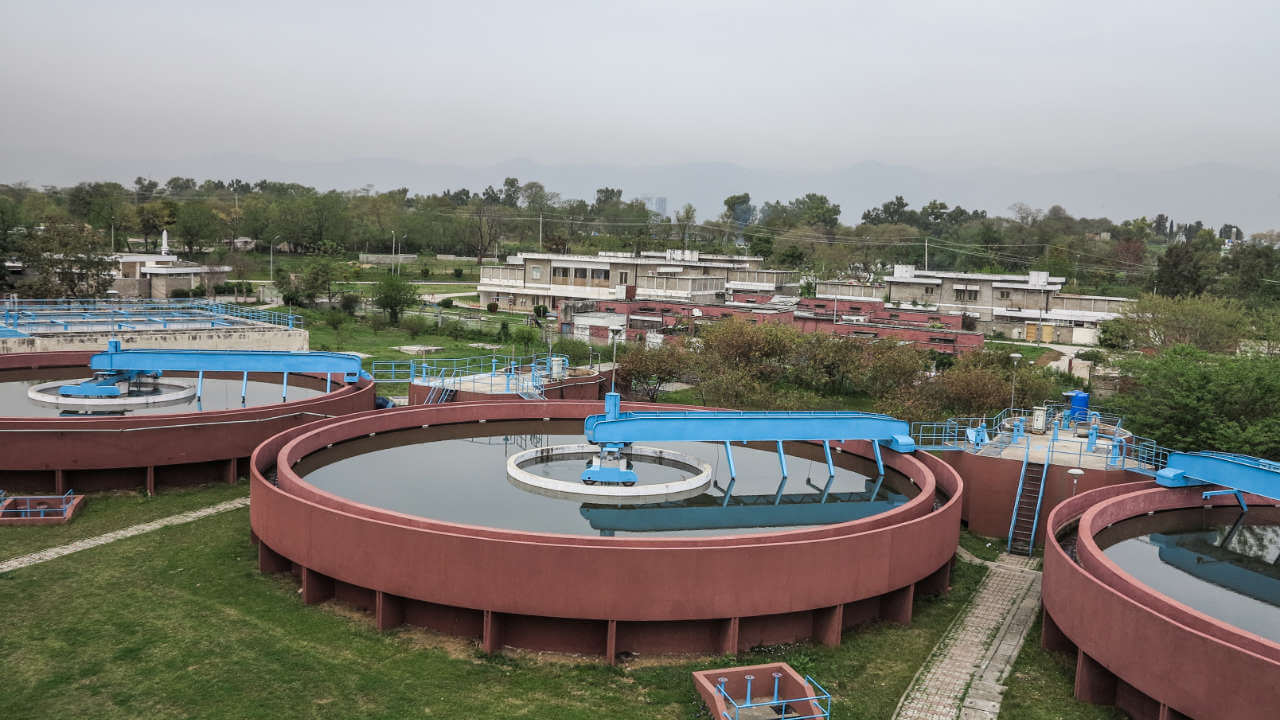
Rawalpindi’s main water and sanitation plant, the Rawal Lake Filtration Plant, is where the city’s water is treated prior to consumption. The plant was rebuilt with ADB assistance in 2001. As Rawalpindi expands, the plant struggles to cope with growing demand for water due to unplanned urban migration. Illegal water connections and lack of maintenance also contribute to significant supply losses.
ADB also developed template PPP agreements for major road and other infrastructure projects in Bangladesh, and for wastewater treatment, recycling, and distribution projects in Pakistan. This stock of precedent or model documentation is scalable and highly replicable in a multitude of similar projects, allowing a pipeline of similar projects be developed and financed more efficiently.
ADB continues to assist developing member countries put together essential building blocks for private sector participation and commercial law reform. Reform initiatives on this front continue in Indonesia and Uzbekistan, and will soon commence in Armenia, Cambodia, Maldives, Papua New Guinea, the Philippines, and Viet Nam.
